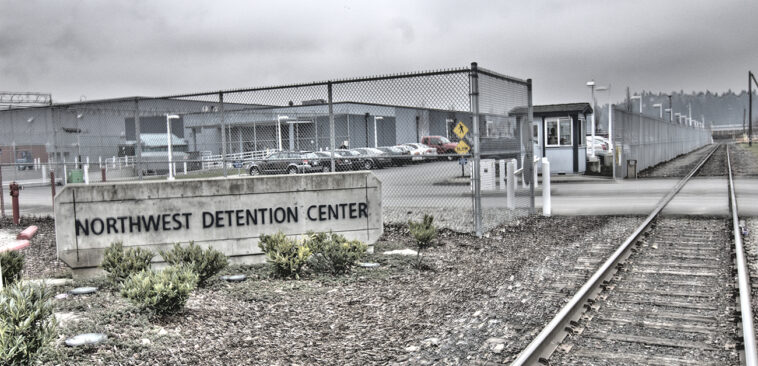Just a fortnight after the sweeping, city-wide protests against U.S. Immigration and Customs Enforcement (ICE) in Seattle, the area’s ICE Field Office Director, Cammilla Wamsley, has opted to join the conversation. Having assumed her new position merely two months ago, Wamsley seems fundamentally unfazed by the public condemnation. In her conversation with KIRO Newsradio, she conveyed that ICE officials are not only conscious of the heightened public scrutiny, but they stand firm in their mission.
Wamsley positioned her perspective in terms of civil liberties, indicating that, in her opinion, expressing dissent through protest is a fundamental part of the American identity. She was clear in her affirmation of the public’s right to protest, expressing the view that such activism forms an essential part of democratic discourse.
She threw light on ICE’s role as a political agency, acknowledging that perceptions may differ, particularly when it comes to contentious areas like immigration policy. She underlined that irrespective of the administration in power, ICE’s responsibilities remained consistent and imperative. These comments emerge in the context of increased demand for mass deportations by the Trump administration – marking the most extensive deportation thrust in U.S. history.
Reports suggest that the Trump administration aspires to fulfill an ICE arrest quota of 3,000 individuals daily, a goal distributed across 25 ICE field offices. Wamsley, however, refutes the existence of any enforced quota, asserting that her office operates with an ‘aspirational’ arrest goal rather than a federally mandated number. She revealed that her office aims for around 30 to 50 arrests daily, a number that depends on the day’s agenda and the division of teams.
CBS recently reported that approximately 59,000 people are currently housed in immigration detention facilities across the nation. The report highlighted that nearly 50% of those detained do not have criminal records. Despite this data, the President and ICE officials have consistently claimed that illegal immigrants with criminal backgrounds were leading targets for deportation, although all non-citizens also faced possible removal.
Wamsley acknowledged these claims, stating that a significant proportion of their cases involve criminals or those who have received an express order of removal or qualify for accelerated removal processing. She highlighted that many of those arrested are severe offenders, including sex offenders and murderers.
In light of state’s sanctuary policies, Wamsley emphasized, ICE agents were actively making arrests within communities. A considerable number of individuals detained by local ICE agents are usually placed in Tacoma’s Northwest Detention Center – a facility that has faced unrelenting criticism over numerous human rights violation allegations over the years.
Conversely, the University of Washington’s Center for Human Rights has issued series of report findings focusing on the Detention Center. Their 2024 report exposes an alarming upward trend in suicide attempts at the facility, and alarming concerns about the hygienic and health conditions within the complex.
Yet Wamsley’s perspective on the conditions of the Detention Center cuts a sharp contrast to the University’s findings. She describes the facility as ‘lovely’, citing frequent inspections upholding performance-based national detention standards and strict adherence by the contractor.
Moreover, immigration was a pivotal theme in the recent presidential elections and still continues to cause divisions amongst citizens. A June Reuters poll illustrated a 3-point drop in support for current immigration policies, with now only 44% of Americans in favor.
Against this backdrop, Wamsley pointed out a sentiment that people migrating to the US should not be taken for granted, inevitably leading to their removal. She rejected allegations of family separation by ICE, stating that the agency’s role is to enforce removal orders, sending people back to their home country.
Wamsley acknowledged the emotional impact of ICE’s operations, but was firm in defending the agency’s duties: ‘I understand that this may not feel good, but ultimately, that is our job.’ This statement speaks to the complexity of the immigration issue as well as the agency’s committed, albeit controversial, stance on the matter.

